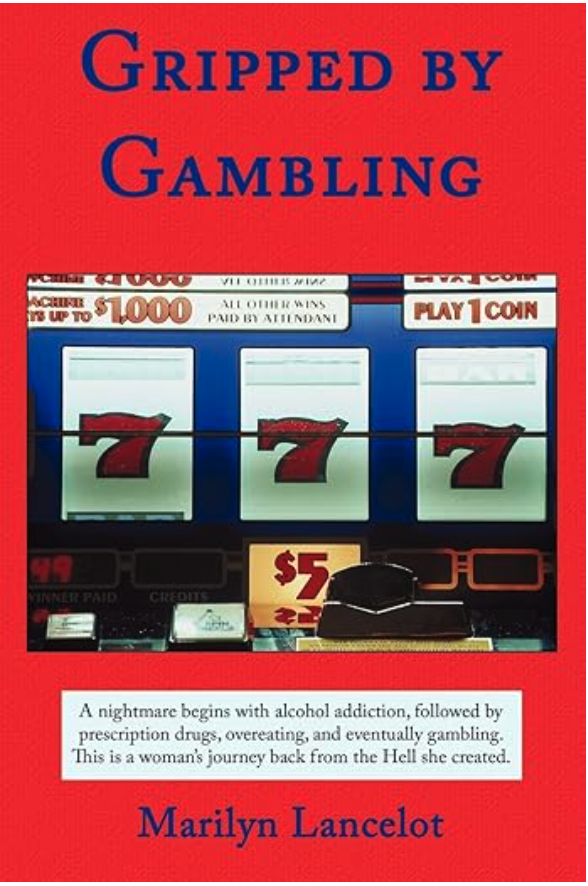Every addiction has its rhythm—this types of gambling problems guide helps you name yours.
Gambling addiction is more than just risking money—it’s a behavioral compulsion that can take many forms. Whether through a glowing screen, the thrill of a casino floor, or a stack of scratch cards on a nightstand, each type of gambling problem has distinct patterns, emotional consequences, and recovery needs.
Let’s explore the three most common types—so you can better understand your experience and take steps toward support.
Gambling Problem 1: Online Gambling Addiction
Private, fast, and available 24/7—online gambling can quickly become overwhelming.
What it looks like: Individuals may spend hours gambling on sports, poker, or slots via websites and mobile apps—often alone. Online platforms are accessible from anywhere, making them popular and dangerous for those with compulsive tendencies.
Why it’s risky:
- Always On: Apps and websites operate nonstop, making boundaries difficult.
- Hidden Behavior: Online gambling can be done in secret, increasing isolation and shame.
- Digital Spending: It’s easy to lose track of real money through virtual wallets or credit.
- Fast Cycles: Quick games like slots and live betting encourage impulsive decisions and emotional highs/lows.
Signs to watch for:
- Frequent use of gambling apps, especially at night
- Concealing activity from partners or friends
- Growing financial strain despite small wagers
- Difficulty focusing on work, relationships, or rest
Gambling Problem 2: Casino Gambling Addiction
High-stimulation environments feel euphoric—but often mask deeper harm.
What it looks like: Individuals frequently visit casinos to play slot machines, blackjack, poker, or roulette. They may stay for hours, losing track of time, money, or emotional wellbeing.
Why it’s risky:
- Sensory Overload: Lights, sounds, and free perks encourage prolonged play.
- Social Pressure: Gamblers may feel validated or ashamed to leave in front of others.
- Near Wins: Games are designed to keep players engaged—even while losing.
- Emotional Highs: The rush becomes addictive, sometimes stronger than the desire to win.
Signs to watch for:
- Difficulty leaving casinos before running out of funds
- Missing work or lying about whereabouts
- Emotional numbness while gambling
- Needing larger bets to feel the same thrill
Gambling Problem 3: Lottery & Scratch Card Addiction
Often seen as harmless, this form of addiction can slowly erode financial and emotional stability.
What it looks like: A person buys lottery tickets, scratch cards, or enters draw games obsessively. They may spend significant sums on what seem like small bets, chasing fantasies of a better life.
Why it’s risky:
- Daily Rituals: Buying tickets becomes a habit tied to emotion or routine.
- False Security: Because the stakes seem low, the problem often goes unnoticed for years.
- Chasing Dreams: Jackpot fantasies replace practical financial plans.
- Instant Gratification: Scratch cards deliver immediate highs—similar to slot machines.
Signs to watch for:
- Overspending even small amounts daily
- Irritability when unable to buy tickets
- Hiding purchases or lying about lotto habits
- Skipping meals or bills in favor of “one more try”
Books for Deeper Understanding
Featured Book Review
Gripped by Gambling by Marilyn Lancelot
A powerful personal memoir detailing Marilyn Lancelot’s descent into severe gambling addiction and her long journey back to recovery. Honest, raw, and deeply human, this book highlights the emotional turmoil, financial destruction, and denial that often accompany compulsive gambling—while also offering hope, clarity, and a message of healing for readers facing similar struggles.
Recovery takes guidance, and books can provide both comfort and practical strategies. Visit our collection of books for healing to explore guides, memoirs, and workbooks that support lasting change.
What You Can Do About the Types of Gambling Problems
Want a structured path out of addiction?
Discover the Life Process Program® — a non-12-step online recovery course created by Dr. Stanton Peele to help you rebuild from gambling and addictive behaviors.
Use coupon code HIGHSTAKES at checkout for 15% off any plan.
If this article reflects your experience or raises questions, here are some gentle steps you can take:
- Subscribe to our newsletter – for recovery tools and compassionate support
- Visit the Step-by-Step Gambling Recovery Plan and begin your journey of healing.
- Explore our Emotional Support Resources – especially if you’re walking alongside someone you care about
Frequently Asked Questions (FAQ)
What are the most common types of gambling addiction?
The most common types include online gambling, casino gambling, and lottery/scratch card addiction. Each has distinct risk factors and behaviors, but all involve compulsive betting despite negative consequences.
Is online gambling more addictive than traditional forms?
Online gambling can be more addictive due to its 24/7 access, anonymity, fast betting cycles, and lack of natural stopping points. These factors make it especially hard to control for those at risk.
How can I tell if I have a gambling problem?
Warning signs include hiding your gambling habits, spending more time or money than intended, borrowing money to gamble, or feeling anxious when not gambling. Any of these may signal the need for support or professional help.
Are scratch cards and lottery tickets really addictive?
Yes. Though socially accepted and perceived as harmless, scratch cards and lotteries can create a strong cycle of anticipation, reward, and financial loss. Daily or impulsive purchases may reflect deeper behavioral patterns.
Can someone be addicted to more than one type of gambling?
Absolutely. Many people switch between gambling types depending on mood, access, or financial state. For example, someone might visit casinos occasionally but gamble online daily.
What kind of help is available for different gambling problems?
Support includes CBT-based therapy, online or in-person recovery groups, self-exclusion tools, and emotional health support. You don’t have to enter a rehab facility to start healing—many resources are available at home.
Final Thought
All types of gambling problems that cause addiction is real—and deserves care. Whether it’s silent lottery spending or high-risk online bets, the urge to escape, win, or feel something deeper connects them all. Visit recovery stories and guides for more insights.
You’re not wrong for asking questions. You’re brave for exploring them.






